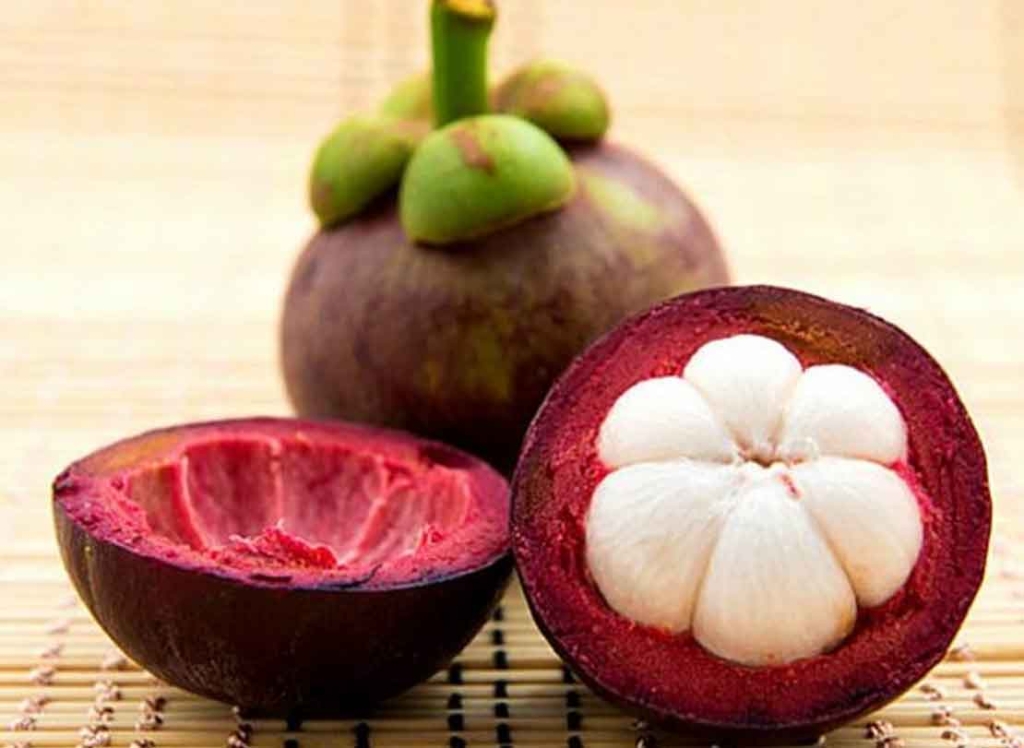Mangosteen
Mangosteen is a tropical fruit that is native to Asia. It is a fruit with a purple skin that contains a white, sweet pulp. Mangosteen is a good source of vitamin C, potassium and fiber. It is also rich in antioxidants that can help protect cells from damage.
The mangosteen is a medium-sized fruit, measuring around 5 to 7 centimeters in diameter. The skin is purple and smooth, and the pulp is white and creamy. Mangosteen has a sweet and tart flavor with a hint of vanilla.

Mangostão
Mangosteen is a versatile fruit that can be consumed in many ways. It can be consumed raw, as a dessert or snack. It can also be used to make ice cream, juices, pies and other recipes.
Here are some of the health benefits of mangosteen:
- Source of vitamin C: Vitamin C is an antioxidant that helps protect cells from damage.
- Source of potassium: Potassium is a mineral that helps regulate blood pressure.
- Source of fiber:Fiber helps regulate the digestive system.
- Rich in antioxidants: Antioxidants help protect cells from damage.
Mangosteen is a delicious and nutritious fruit that offers a variety of health benefits. It is a great option for those looking for an exotic and healthy fruit.
How to choose a ripe mangosteen:
- The skin should be purple and shiny.
- The pulp must be white and firm.
How to store a mangosteen:
- Mangosteen can be stored in the refrigerator for up to a week.
How to eat a mangosteen:
- The skin can be removed with a knife or peeler.
- The pulp can be eaten with a spoon or cut into slices.
Safety Tips:
- Mangosteen must be washed before consumption.
- Mangosteen seeds are toxic and should not be ingested.
Other information:
- Mangosteen is known as the “queen of fruits” in Asia.
- Mangosteen is a good source of xanthones, which are bioactive compounds with antioxidant and anti-inflammatory properties.
- Mangosteen is also a good source of ellagic acid, which is a bioactive compound with antioxidant and anticancer properties.


